Book if I Were Raising My Children Again
The Only Parenting Books You'll Always Need to Read
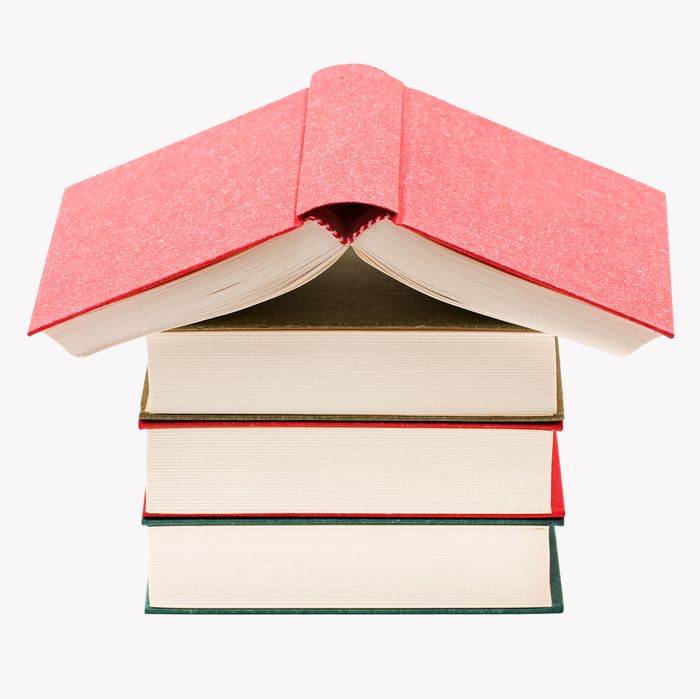
Photograph: hudiemm/Getty Images
I believe that if you're going to invest your time and money in reading a parenting book, it should leave you feeling better than yous did before — simply non in an easy or cheap way, with ten steps or a "plan" for success. Instead, the best parenting books should make us feel better in a complicated, hard-truth way. We tin't really control things (like our kids), just at to the lowest degree we aren't alone.
Parenting books, if they're worth their salt (and most aren't), tend to pb united states of america back to ourselves and toward a reckoning with our ain parentage. Stuff comes up. In this way, they're a lot like parenting itself: We want to shape our children into something other than our own paradigm (something better). Hoping for this is a trap, 1 that'south impossible to avoid.
The very best parenting books are improve than the intentions we bring to them. The expert ones are both consoling and challenging, reminding us that to be a parent who is nowadays, and forgiving, and kind, y'all must get-go be all of these things to yourself. (Harder than yous'd recall.) The parenting books listed here are some of the best of the all-time.
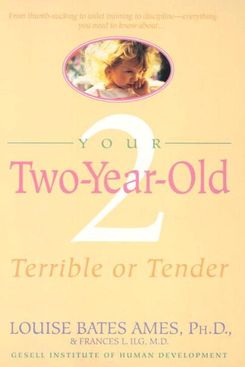
This is book is part of a series of the best little books about child development. They're all really lilliputian — about 150 pages (a third of which are blackness-and-white photo illustrations of children from the '70s) — and follow the same full general formula: hither's what you lot're dealing with, here'south what tends to work, isn't it fascinating!, do what works and information technology will get better soon. I goddamn beloved them.
The late co-authors, Louise Bates Ames and Frances 50. Ilg, were psychologists and co-founders of the Gesell Child Development Institute at Yale, but their dominance on the subject feels both vernacular and encyclopedic, like they're describing a dear friend they've spent their whole lives observing and thinking near. But this friend just and then happens to be your kid, which means they must be spying on her from the great Yale tenure in the sky (then hopping in a time machine to publish these books in 1976, 40 years before she was born).
Your mom might have read these almost you lot. If so, inquire to borrow them. I hope they are non too boomer-authoritarian, and will but make yous feel better nigh your kid. "Remember that television can be your friend," Your Three Yr Quondam: Friend or Enemy offers. "Wisely used, it can keep a child happy, well behaved, and out of difficulty for long periods." This must exist what Amazon commenters mean by the communication being out-of-date but I, for 1, find information technology as relevant as e'er. Do whatever it takes to get by without causing too much of a fuss, the volume seems to argue. The authors promise smoother sailing in a few months when there's difficulty, and affectionately sing the praises of the item sweetness and creativity of immature children. I find their tone to exist tender but consoling, their approach the perfect mix of no-nonsense and wildly compassionate.
Read these books with a glass of wine afterward bedtime to remind yourself your kid is not a fact a monster. Revel in the fleeting particulars of him at this age. Laugh when the all-time advice the authors tin can come upwards with for stubborn iii.5-year-olds is this: Send them to preschool, considering they'll conduct better for people who aren't their parents.
Your Two-Twelvemonth-Old by Louise Bates Ames & Frances L. Ilg
FURTHER READING
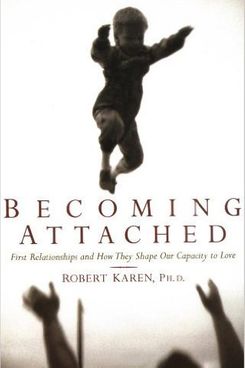
This occasionally slow-going only fascinating book goes deep on the history of attachment theory and its current renaissance, raising questions like: In what specific ways did my parents ruin me for all future relationships?
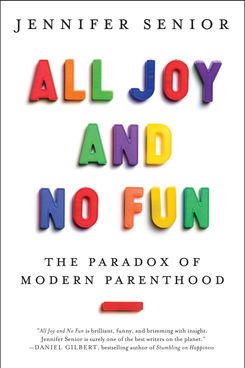
This book is a great reply to every fourth dimension you lot've ever wondered, "Is it simply me, or is existence a parent bad in a very detail style correct now?" A leading question, maybe, but Senior has convinced me that the respond is "Yes." Inspiring either a consoling self-forgiveness or a maddening burn down under one's ass (both, one hopes), quondam New York staff writer Senior winningly leads us through the earth of modern parenthood with both depth and breadth, in a voice that is insightful, relatable, and genuinely searching.
Structuring her volume around portraits of a handful of American families from all over the state, Senior goes with them to soccer games and PTA meetings, sits with them at dinner time, interviews them during nap time and right in the thick of things, capturing that deeply familiar day-to-day survival that characterizes the reality of life with kids. Senior weaves in existing research on the psychology and folklore of parenthood from the past 50 years, and highlights what'south inverse and what hasn't to great issue. (Her book's bibliography would make an excellent syllabus.)
Senior concludes that this particular cultural moment is a unique intersection of loftier emotional investment (resulting from having children subsequently, voluntarily, and expecting to be fulfilled by them) and low structural support. What Senior's book clarifies, again and once more, is that the affair that affects parents (and therefore children) the most is what gets lost in nearly conversations about "parenting": the daily, lived feel of raising children.
In other words, information technology'due south a skillful book to text passages of to your friends, specially mom friends who are exhausted and backside on piece of work and ignoring the dishes simply even so up style besides late and about to spend likewise much money on a bespoke Halloween costume from Etsy (let's not even talk about the ones who sew them themselves). "Our expectations of mothers seem to have increases equally our attitudes toward women in the workplace have liberalized."
"YUP," they'll say. "Okay how tour this Moana one? It'south good correct?"
All Joy and No Fun by Jennifer Senior
FURTHER READING
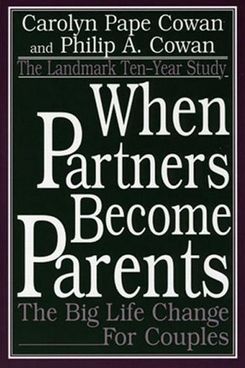
Cited by Senior throughout her book, this ten-yr longitudinal written report of the effects of parenthood on romantic partnership is wildly affirming (it'south not simply you). This book captures the ups and downs (mostly downs) of relationships during the crisis of new parenthood in a way that few books have since it was published in 1992.
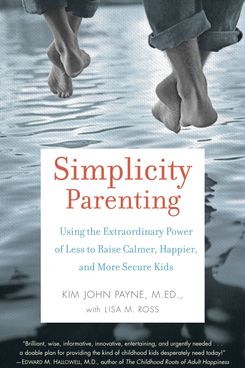
This book is a classic parent troll, and so you'll need to be gear up for that. Read information technology at a time of emotional fortitude, ideally at a moment when you think to yourself, "Okay, things are about to get easier before long. I feel like I can finally catch my breath. Is in that location a homo somewhere who can Kondo my family unit life?" (The writer's outset name is Kim and yep, I felt betrayed when I realized he was in fact an Australian man and non a Scandinavian woman sent to share the gospel of toys fabricated from natural wood.)
In fact, what Payne calls for is reassuringly intuitive and well, nice. Payne advocates for fewer toys, less TV (okay, "no TV," but I've already edited the book in my mind), more of a "daily rhythm," fewer stressful extracurriculars, and filtering out too much adult information like the news or shop talk. Initially, I bristled at this last suggestion, merely then I was driving to preschool with NPR on when my kid piped upward from the backseat: "What practice hurricanes practise? I mean, what do they do to people — do they brand them dead? Are in that location hurricanes here?" Okay fine. I get it.
Some of the book is too strident or out there (let's just pretend the phrase "soul fever" doesn't occur within these pages), but I found myself less interested in the particulars than in Payne's underlying idea: that when we can — when we have the breathing room — it'southward worth revisiting our long-abandoned ideas about what we imagined our family lives would look like.
In this way, Simplicity Parenting is a sort of belatedly-capitalist "solution" to the problems introduced in All Joy and No Fun. Senior and Payne both seem to argue that we are too stressed, as well busy, as well focused on achievement and non enough on well-beingness. Payne takes these problems for granted, and spends his book offering practical suggestions to bring ease and space dorsum into your life. While i might (and I would) argue that agitating for political modify (paid family get out, universal health care, and child-care subsidies, for case) would exist a much, much more constructive antidote, short-term actions yous can put into motion yourself — baking a cake on Sundays, say, or making an after-dinner walk a family tradition — also sound overnice.
"Even if some of the details were unrealistic," Payne argues, "your dreams about your family had truth to them." He may equally well be talking virtually this book.
Simplicity Parenting by Kim John Payne
FURTHER READING
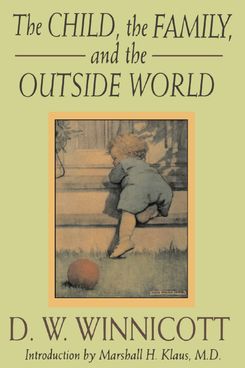
Pay a corrective visit to the wildly influential pediatrician and psychoanalyst who introduced the world to the concept of the "good-plenty mother."
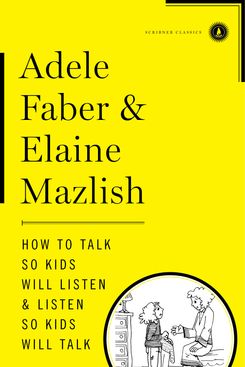
This volume became an instant classic when it was published in 1980 and has sold millions of copies since. Bear witness information technology to a bookseller and they might sigh audibly or say, "Oh yep," with an undercurrent of resentment over all the times a customer stood before them trying to recite the title. "It's yellow? With block letters? What we talk about when we are … listening? Nearly … talking?"
In any case, believe the long-running hype. Every time I think nigh this book I get a blitz of tender feelings toward information technology, feelings that quickly shift into contending with my own urge to be re-parented, preferably by the book's co-authors, Adele Faber and Elaine Mazlish. The two have six children betwixt them but for purposes of simplicity, they write in the kickoff person and accept little blended children. The resulting voice is charming and funny, total of humility and compassion, like if Anne Lamott were leading a parents' support group but without the Jesus stuff.
This book really is framed by a weekly support group, with each affiliate roofing a week of the authors' real-life parenting workshop. If that sounds too corny for you, well, my god, consider the genre. Simply corny threshold nevertheless, consider that this means voyeuristically reading about a bunch of '80s adults talk most their feelings and their extremely specific battles with their kids and their expectations and their frustrated powerlessness (all with a blest lack of hand-wringing about The Dangers of The Net). I ate information technology upward.
The very get-go chapter is "Helping Children Deal With Their Feelings," which made me sure my own boomer parents were not amongst the iii million people who have purchased this book. Later comes "Alternatives to Punishment," "Engaging Cooperation," and "Encouraging Autonomy." I must warn you: Sprinkled throughout are cartoons illustrating skilful and bad parent-child interactions ("INSTEAD OF DENYING THE FEELING, showroom A, Requite THE FEELING A NAME, showroom B"), and they are drawn in a painfully non-expert style that didn't bother me and in fact seemed to make the volume feel more than urgent, every bit if the co-authors' eagerness overcame their embarrassment. It's very on-message.
The authors' little tips don't necessarily come naturally, but if you do remember to attempt them, but endeavour not to express mirth when you see how well they work. It's almost annoying, or would exist if the book weren't written in the spirit of generosity and in the interest of children and parents both feeling heard and respected then forgiving each other when they both mess up more or less constantly. Corny, certain, but true.
How to Talk So Kids Will Listen & Listen And then Kids Volition Talk by Adele Faber and Elaine Mazlish
FURTHER READING
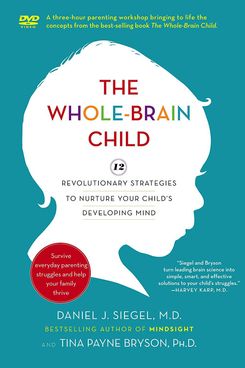
For the skeptic parent who is unmoved by chestnut (fine). This book features a similar approach of acceptance but makes utilise of basic neuroscience to dorsum itself up — knowing what parts of the brain are activated mid-tantrum, for example, might change how nosotros face one.
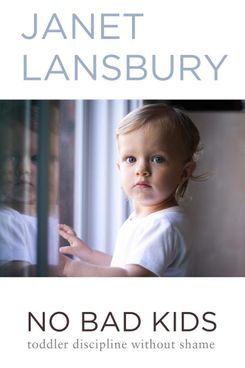
Lansbury is a quondam extra and model who has taught parenting classes in Hollywood for decades, only found wider success as a prolific writer and podcaster and full general toddler consigliere. A couple of my mom friends and I simply refer to her as "the guru" and I notwithstanding don't know if nosotros're joking or not. Her popular books are self-published compendiums of some of her best blog posts (when I filled out the contact form on her website to asking a review re-create, I got a prompt reply from Michael L., who introduced himself every bit "Janet's married man and Mailroom Supervisor"). Lansbury'south general approach or "philosophy" is that we should treat children with respect, and, whenever possible, try to meet them where they are.
I am normally averse to "schools" of parenting (and anything overarching when information technology comes to kids), but I make an exception for Janet because: (1) The phrase "without shame" is in the title and shame might exist 1 of the ruling negative emotions in my life and if there's anything I'd like to spare my son it's that, and (2) Lansbury brings a self-aware resistance to dogma that's refreshing and reasonable. She seems to want to help our children blossom into their best, nigh authentic selves without totally fraying our nerves in the process.
It'southward that terminal part that endears Janet to me most of all; without it, a lot of what she advocates for would seem foolishly optimistic or just absurd. You lot don't need to "respectfully" tell your toddler to stop boot y'all in the damned face, and you need to know the limits of your own patience earlier you let your child cross them. They're kids, she argues, and they want to know that you're in charge. A parent should embody, per the guru, the at-home, "unruffled" bearing of a CEO.
Are at that place weird implications of aspiring to exist a CEO-mom? Maybe … but let's simply say it's a helpful image, something to come dorsum to when you're feeling worn down or having a tough week. There's value in a parenting mentor who seems to more interested in process than product (or is it the other way around?). Unruffled, proud, self-confident. I never know if she means us or the children — how nice that both are taken into business relationship.
No Bad Kids by Janet Lansbury
Farther READING
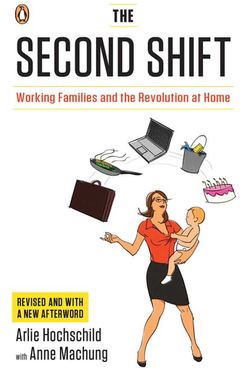
Because it'southward easier to be unruffled when y'all don't have to practise all the domestic labor yourself. This groundbreaking portrait of working parents and how they divide household tasks is a few decades onetime just sadly as relevant every bit always. I get-go read this as a freshman in college, just I withal think virtually it all the time.
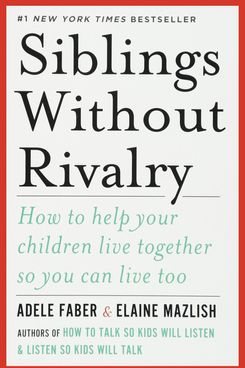
The way we fence, what nosotros value, our level of competitiveness, the amount and kind of guilt we possess — so much of our identities are adamant by the crapshoot of sibling dynamics. This proved to be fertile ground for Adele Faber and Elaine Mazlish, the authors of How to Talk So Kids Will Mind … The authors' volume on siblings has the same instructive cartoons, the same entertaining grouping-therapy frame, and a similar unwillingness to sacrifice depth at the altar of the digestible message.
While specific tactics are provided for everything from handling violent physical fights to avoiding comparison and overdetermined family roles, the nearly effective parts are in-scene at their parenting workshops, where the parents depicted first limited drastic exasperation and disbelief, then reveal a bounty of alluring interpersonal anecdotes from their own childhoods, and finally, arrive at an actual reckoning. Of course siblings fight. They're natural rivals, competing for resources (actual and emotional). How many of u.s. can spend more than a few days with our ain siblings without regressing into moody teens?
The book ends with middle-aged moms and dads calling their siblings (sometimes estranged, frequently simply begrudged), and finding themselves able to forgive or at least empathise and connect with them in a way they couldn't before they saw the dynamics play out in their ain children. There are means to convalesce this, the book argues, to manage the inevitability and to make it less wounding, or less defining. This may sound grandiose, but that's only because you haven't read the book withal.
Siblings Without Rivalry by Adele Faber and Elaine Mazlish
Further READING
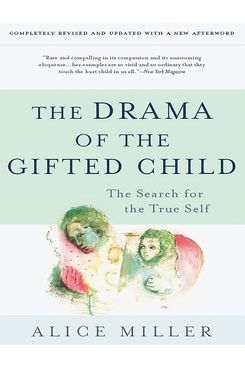
File under: books to help you lot straighten your own shit out before you repeat the cycle despite actively fearing it exactly (wooo!). Gifted kid or not, the particular family dynamic captured by this book is 1 that I notice all the time (especially in myself): Kids who acquire all too apace how to please their parents at the expense of actually knowing what they like or want.
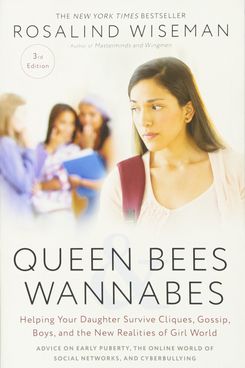
This volume served as the inspiration and source cloth for Tina Fey's Mean Girls. Whether that serves as disclaimer or recommendation is up to you. Queen Bees seems to meet teens on their level, which is probably what makes it so constructive (if not occasionally alarmist, or possibly that's the super Christian nerd in me talking?).
Rosalind Wiseman had been visiting high schools and leading workshops with adolescents long earlier she introduced us to Girl World and the taxonomy of teenage girls. There's the Hateful Girl, The Wannabe, The Bystander, The Banker — Wiseman could exist accused of many things merely missing the opportunity for a coinage is not one of them.
Where others might be more dismissive, Wiseman takes the challenges and power dynamics and high-stakes anxieties of Girl World seriously. Information technology's clear she has keen empathy for and insight into not just the drama and the gunning for social status, but the bigger picture, too: questions of intimacy, self-worth, and trust.
My son is simply in preschool, and so I had the luxury of relating more to the teens than to the parents-of-teens, the latter of whom ofttimes seem to discover themselves completely out of their element in a manner that recalls the earliest days of parenting a newborn. If the glut of books nearly parenting teens is any indication (my personal favorite, by title if non painfully corny content: Yes, Your Teen Is Crazy!), this is a conundrum that's inevitable and inherent to raising a child. Just accepting that doesn't go far whatsoever easier. For someone in the thick of parenting a teen, this volume would be a small mercy, touching as information technology does on the subjects your child would be too embarrassed or annoyed to explain to you on their ain.
Queenbees and Wannabes past Rosalind Wiseman
FURTHER READING
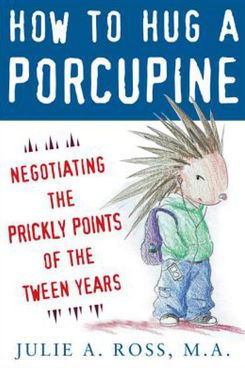
For parents whose kids aren't yet mean girls: This book is full of sympathy and brimming with tips (and an affluence of metaphors, be warned), and eases yous in with an adorable drawing porcupine.
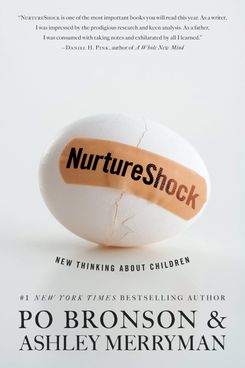
This book is the ultimate compendium of magazine-style counterintuitive parenting-trend pieces. "Why our instincts nigh children tin can be so off the marker," its marketing copy argues, promising real data and the always-beguiling shattering of conventional wisdom. I don't mean to sound dismissive, as NurtureShock is both a great read and manages to make its points without trafficking in parental anxiety. If annihilation, the volume — with chapters on kids needing more sleep, being praised too much, labeled gifted besides early — seems to fence that it's our own misplaced agita that causes bug. As I read information technology I was flood with the urge to share all of my new "actually" Child Facts with my married man, who would respond with a polite "Wow."
If most of the volume argues that parents should worry and interfere less, the standout chapter is a notable exception. Titled "Why White Parents Don't Talk About Race," information technology should be necessary reading for all those implicated. Kids do notice difference, specially race, and hoping to enhance your own as "color-blind" is both naive and dangerous. If you avoid the subject, you run a risk your kids internalizing awkwardness and assuming you're racist. This might sound intuitive to some, but we should all remember the powerful consequences of ideas we consider "instincts" or "conventional wisdom" or "convenient theories for me."
The book's ideas — children are contradictory and circuitous, cannot be hacked, and should be allowed to develop on their ain time — make for a less-than-straightforward read. That the authors managed to write such a commercially successful book (the aggressive title doesn't hurt) is a attestation to their deft skill as much equally their genuine intentions.
NurtureShock by Po Bronson and Ashley Merryman
Farther READING
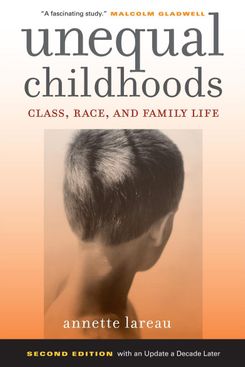
Cited by anybody from Jennifer Senior to Malcolm Gladwell, this volume was a watershed examination of the sometimes unexpected (to some!) roles grade and race play in American childhoods, and along the way questions the "concerted cultivation" approach of the eye-grade parent.
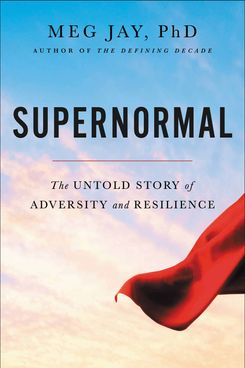
If yous haven't noticed or fabricated fun of them yet, parenting culture's trendiest desired attributes are GRIT and RESILIENCE. Dust is, of course, the goofier of the 2, evocative of both dirt and a southern breakfast food. But who doesn't want to be resilient? Who doesn't want their children to be?
With this volume, longtime clinical psychologist Meg Jay challenges us to interrogate our assumptions about resilience, to grapple with what's really going on inside a kid we desire to praise for overcoming adversity. Children accommodate well, almost too well in some cases, and the coping skills that help children survive may be the ones preventing them from relating as adults. When adapting becomes a way of life, do you e'er feel confident that other people will adapt to you? Would we rather our children hide behind their accomplishments or take a sense of inherent cocky-worth?
Jay weaves new brain research, celebrity anecdotes (Marilyn Monroe's childhood spent in foster care, for example), and some option psychoanalytical wisdom, but the narrative centers around anonymized former clients. Jay introduces u.s. to each of her extremely high-achieving patients and then walks usa through their painful but often common circumstances — they are children whose parents are divorced, or alcoholics, or expressionless; kids with disabled siblings, or abusive coaches — and then, their current feelings of isolation, exhaustion, or low.
Over half of adults experienced adversity in their childhoods, according to research Jay cites, so these patients are not abnormal, despite feeling that style, and despite our romanticization of their resilience. These kids grow upward to be almost of us, really, to any caste. Perhaps nosotros all demand to focus on our own shit to be the kind of parents who tin can really run across and accept our children, to escape the trap of choosing the appearance of "doing well" at the cost of feeling okay.
Supernormal by One thousand thousand Jay
Further READING
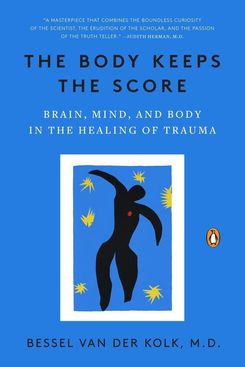
This 1 is not nigh parenting per se, but my experience with childbirth left me mildly traumatized in ways I merely truly understood after reading this book. I feel amend for having read information technology, and better equipped, equally a parent and a citizen, to run into the way trauma — beyond the buzzword — is at work in so many of our experiences.
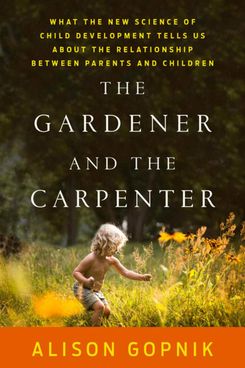
Gopnik is a professor of both philosophy and psychology at UC Berkeley. In her latest book, she explores "the new science of kid development" and what it tells united states of america about the parent-child relationship. She opens with a criticism of the mode nosotros talk about raising children — "parenting" is a discussion, and a cottage industry, invented in the past 30 years. Nosotros should be discussing our children in language that more closely resembles a gardener's, every bit in disposed to and caring for 1's garden. A gardener harbors no illusions of control, and is open to — cherishes even — the vicissitudes of her plants. She is willing to be surprised. She knows the plants grow on their own.
Gopnik uses evolutionary psychology, neuroscience, and animal behaviorism to argue that we must accept such vulnerable babies with such extended childhoods for a reason. Children, she explains with the blissful detachment of someone whose children could only be grown, are meant to be messy chaos agents. They are meant to learn through play and exploration, and they are not bad at information technology, and will, overwhelmingly, turn out only fine, no affair how many parenting books nosotros read. It's a squeamish thought, and a welcome corrective, though 1 I can imagine it might accept becoming a grandmother before fully inhabiting.
FURTHER READING
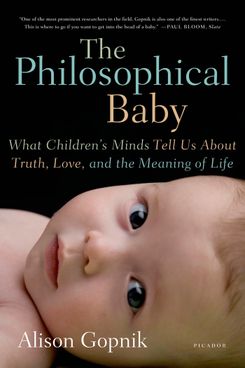
Read Gopnik's earlier book as a reminder that children give as much as they get, and not just because they're cute. Gopnik brings us on a bout of the enkindling consciousness of babies and shows u.s. how much we tin learn nearly the essential questions of human nature by looking to the small, screaming friends we are trying our best to keep alive.
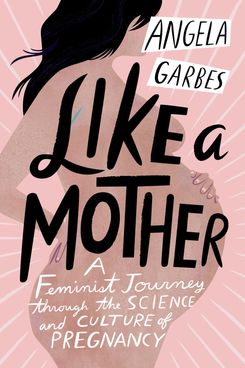
Because children aren't the only ones developing. With a sorely needed feminist perspective and a treasure trove of accessible scientific revelations (the placenta alone!), Garbes shares her own transformation into a parent and reminds u.s. what our bodies go through in pregnancy, birth, and breastfeeding. Garbes's volume works from the radical supposition that really, women do know what they demand, which serves to highlight all the ways that inequality and gaps in structural support make everything harder than it needs to exist, especially for women of colour. "Becoming a mother may be ane of our most culturally traditional acts, but," Garbes argues, "it is also the place where we can intermission with our most limiting, oppressive traditions."
If y'all buy something through our links, New York may earn an affiliate committee.
Source: https://www.thecut.com/article/parenting-books.html
0 Response to "Book if I Were Raising My Children Again"
Post a Comment